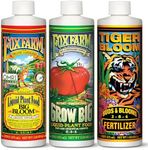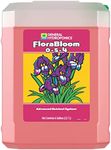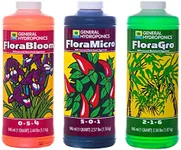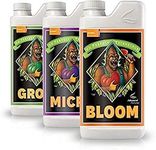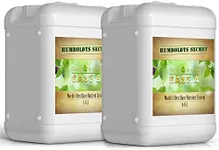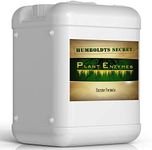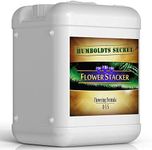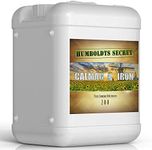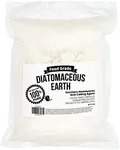Buying Guide for the Best Hydroponic Nutrients
Choosing the right hydroponic nutrients is crucial for the success of your hydroponic garden. Hydroponic nutrients provide the essential minerals and elements that plants need to grow, as they do not have access to soil. Understanding the key specifications and how they impact plant growth will help you make an informed decision and ensure your plants thrive.Nutrient CompositionNutrient composition refers to the specific mix of essential elements like nitrogen (N), phosphorus (P), and potassium (K), often referred to as N-P-K ratio, along with other micronutrients. This is important because different plants have varying nutritional needs at different growth stages. For example, leafy greens may require higher nitrogen levels, while flowering plants need more phosphorus. To pick the right one, consider the type of plants you are growing and their growth stage. Look for nutrient solutions that specify their N-P-K ratio and match it to your plants' needs.
pH StabilitypH stability refers to the nutrient solution's ability to maintain a consistent pH level, which is crucial for nutrient absorption. If the pH level is too high or too low, plants may not be able to absorb the nutrients effectively. Hydroponic systems typically require a pH range of 5.5 to 6.5. Choose a nutrient solution that is designed to be pH stable or includes pH buffers to help maintain the optimal pH range for your plants.
SolubilitySolubility is the ability of the nutrient solution to dissolve completely in water without leaving residues. This is important because undissolved particles can clog your hydroponic system and affect nutrient delivery to the plants. High solubility ensures that nutrients are evenly distributed and readily available for plant uptake. When selecting nutrients, opt for those that are highly soluble and specifically formulated for hydroponic systems.
Organic vs. SyntheticOrganic nutrients are derived from natural sources, while synthetic nutrients are chemically formulated. Organic nutrients are often preferred for their environmental benefits and the belief that they produce healthier plants. However, they may be less consistent in nutrient content and can sometimes cause clogging in hydroponic systems. Synthetic nutrients, on the other hand, offer precise control over nutrient levels and are less likely to cause system issues. Choose organic if you prioritize sustainability and natural growing methods, or synthetic if you need consistency and ease of use.
MicronutrientsMicronutrients are essential elements required in smaller quantities, such as iron, manganese, zinc, copper, molybdenum, and boron. These are crucial for various plant functions, including enzyme activity and chlorophyll production. A deficiency in any micronutrient can lead to poor plant health and reduced yields. Ensure that the nutrient solution you choose includes a balanced mix of both macronutrients and micronutrients to support overall plant health and growth.
Ease of UseEase of use refers to how simple it is to mix and apply the nutrient solution. Some products come as concentrated liquids or powders that need to be diluted, while others are ready-to-use. Consider your experience level and the time you can dedicate to maintaining your hydroponic system. Beginners may prefer ready-to-use solutions or those with clear instructions and easy mixing ratios, while more experienced growers might opt for concentrated formulas that offer more control over nutrient levels.
